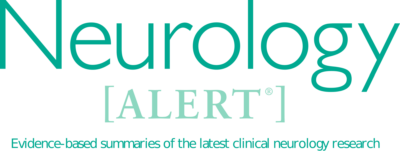
Neurology Alert – August 1, 2024
August 1, 2024
View Issues
-
Insights into Restless Legs Syndrome from Genome-Wide Meta-Analyses
This genome-wide association study’s meta-analysis, performed in a large European-ancestry cohort, identified 164 risk gene loci for restless legs syndrome. Some of the loci point to potential new drug therapies, but there also was strong evidence of currently unknown environmental factors that influence the expression of various genes.
-
Enlargement of Choroid Plexus in Subacute COVID-19 Patients
The authors of this study hypothesized that there likely is enlargement of the choroid plexus in patients with COVID-19 infections.
-
Is Autologous Bone Marrow Cell Therapy a Potential Treatment for Traumatic Brain Injury?
This study proposes that autologous bone marrow mononuclear intravenous infusion for severe traumatic brain injury in children appears safe and potentially may be efficacious.
-
Are New-Onset Seizures Associated with SARS-CoV-2 Vaccines?
In this meta-analysis, there was no statistically significant difference in the risk of new-onset seizure incidence between vaccinated individuals and placebo recipients in the 28-day post-injection period. Similarly, in the post-injection entire blinded phase (median follow-up 148, 121, and 43 days in three trials), no significant difference was observed between the vaccine and placebo recipients regarding the incidence of new developing seizures.
-
Acute Clinical Worsening Without MRI Changes in Multiple Sclerosis
Patients with multiple sclerosis (MS) can have an acute clinical event suggestive of a relapse, but their magnetic resonance imaging (MRI) shows no corresponding changes (labeled by the authors as an acute clinical event with stable MRI [ACES]). These events have not been systematically analyzed. The authors reported that this number is significant, and a quarter of the relapses reported by patients fall under this category. Patients with ACES had higher relapse rates and a greater risk of transition to secondary progressive MS.
-
Utility of Electromyography in the Diagnosis of Rhabdomyolysis
Electromyography often is requested in the evaluation of a patient with rhabdomyolysis. It often shows evidence of “myopathy,” but muscle biopsies frequently are non-confirmatory, and genetic testing often is needed for a definitive diagnosis.
